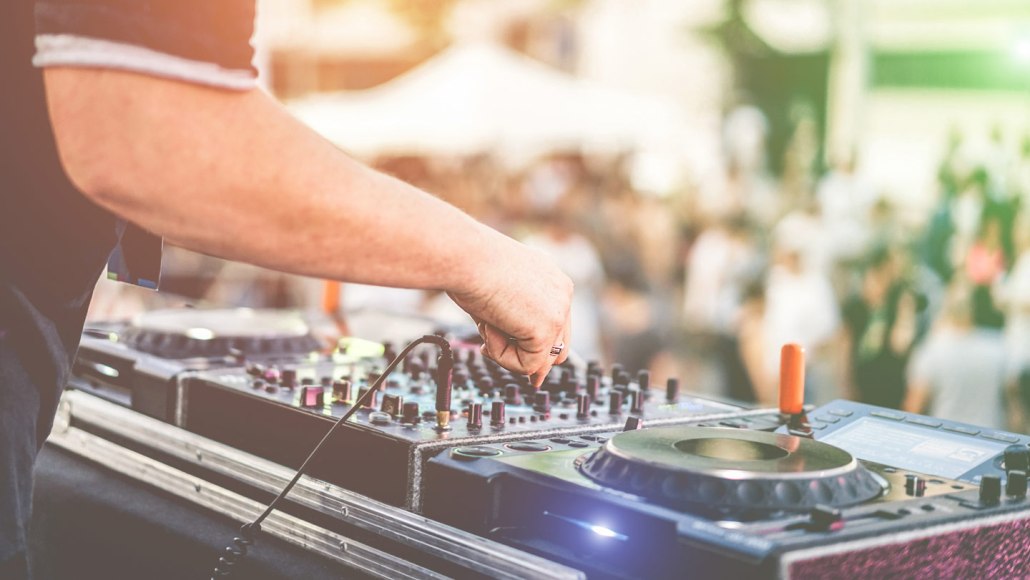
Protecting your hearing in loud spaces can help ward off cognitive decline as you age.
DisobeyArt/Getty Images
The symphony of summer is under way: Lawn mowers droning, cicadas buzzing, kids shrieking, outdoor concerts and cracking fireworks. Summer’s delights often reach us through our ears. But protecting our hearing is often an afterthought, if we think of it at all. Here, I’m urging you to take a moment to appreciate the sounds in your life — not as the daughter of an audiologist (which I am) or as a neuroscience writer (also me), but as an everyday enthusiast of sounds.
People are quick to name a favorite color, but favorite sounds aren’t always as obvious, says audiologist Deanna Meinke of the University of Northern Colorado in Greeley. To prompt people to think more about their hearing, Meinke has been collecting a treasure trove of people’s favorite sounds: kids’ laughter, rain on a roof, wind in the trees, a loved one’s heartbeat. Animal sounds. Music.
“We protect things we treasure,” Meinke says. “So we have to get people to value their hearing.”
As we get older, hearing loss is somewhat inevitable, says Frank Lin, an otolaryngologist and epidemiologist at Johns Hopkins University. Cells that detect sounds and send signals to the brain can’t regenerate, Lin says. “So it doesn’t matter who you are, no matter what you do, everybody’s hearing will monotonically get a little bit worse over your entire lifetime.”
And that matters, not just for your ears but for your brain. Lin and others have found a link between hearing and cognition. Hearing interventions, including hearing aids when warranted, slow the loss of memory and thinking skills among older people at risk of cognitive trouble.
Although many factors that affect hearing can’t be helped, there’s one big one that can be: noise exposure. Lin compares loud sounds to sun exposure. One sunburn won’t kill you, he says. But like repeated sunburns, “if you keep on getting exposed to a lot of loud noise, you’re going to be paying the cost many years down the road.”
Part of protecting your hearing is knowing how good it is to begin with. Lin and colleagues have developed a free app called Hearing Number to test hearing at home using headphones or earbuds. As I took it, flashed back to being a kid in my dad’s sound booth, listening intently for the beeps. I didn’t get an official hearing test back then, but now I have a baseline: 15 decibels in the left ear and 14 decibels in the right ear. My numbers suggest I don’t have trouble hearing people talk in noisy environments, which is a great place to be at middle age.
“People have to think about hearing as this number that they follow over their lives, much like they follow their blood pressure or their weight,” Lin says.
Beyond this tracking, there are obvious ways to protect your hearing. Turn the volume down when possible, move away from loud noises and limit the time spent near them. When those adjustments aren’t possible, get some hearing protection.
Usually, the type of protection isn’t all that important, Lin and Meinke both emphasize. Earmuffs or cheap foam plugs effectively block sounds from lawn mowers or chainsaws, for instance. For concerts, specialized earplugs reduce sounds evenly across the frequency spectrum, leaving music truer to its original sound. And electronic earplugs quickly lessen big sounds, like firearms or nearby explosions. The key is comfort.
When I ask her own favorite sound, Meinke doesn’t hesitate: “the sound of the sandhill crane early in the morning in a mountain valley in southern Colorado.”
So this summer, give some thought to your hearing, and all of the melodious, tinkling, sharp, beautiful sounds it lets you hear.








